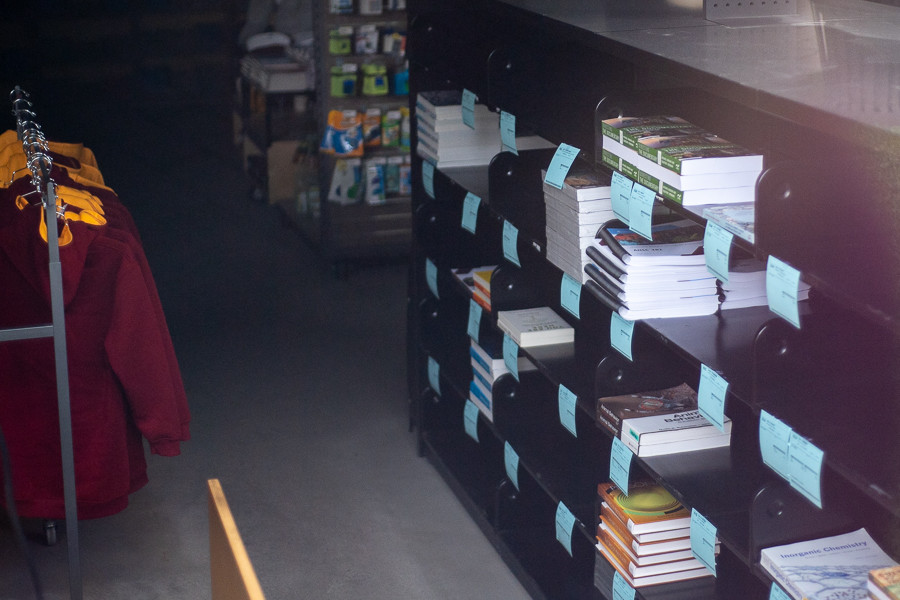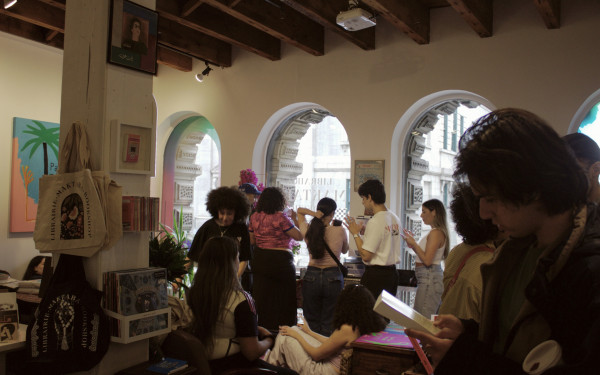Concordia bookstore is facing a textbook shortage
Canadian publishers struggled to print and ship books in time for the fall semester
“I’ve been busy lately,” said Brian Layne, an employee at the Loyola Book Stop. He paced through nearly empty shelves and took note of the books missing from his inventory. “There aren’t enough books for every student,” he said.
Even though students still visit the shop for books, many leave empty-handed—a problem Layne attributes to the pandemic.
Since 2020, Canadian publishers have struggled to produce and ship high volumes of academic books.
Publishers who work with printing presses in Asia are most affected by book shortages because they must deal with what The Financial Times Journal calls a shipping crisis. In 2020, panic about COVID-19 delayed international deliveries en masse. Since then, there has been a large backlog of shipments. So, multinational book companies must wait long periods before they receive products.
“The pandemic hit the publishing industry hard with lockdowns and restrictions,” said Sabrina Lavoie, the Executive Director of Budgets and Business Development at Concordia. “We adjusted our buying habits to mitigate shipping delays.”
“[But] if a publisher doesn't have the staff, our hands are tied,” she added. That leaves students having to scramble to find old editions of books on Amazon or Facebook Marketplace.

Even though Concordia’s Book Stop does not meet consumer demand, Layne does not want students to panic. “A lot of people don’t have all of their books yet, and the school knows that it isn’t anyone’s fault,” he said. “We are all learning to be more flexible because of the lack of books.”
“I know that this inconveniences students, but we are trying our hardest to find solutions with professors and administration,” said Layne.
The bookstore now helps professors adjust reading lists based on what is available online or at the library.
Thanks to reading list adjustments, Sayna Ranjbar, a second-year biology student, did not need to order books through Concordia.
“I didn’t have a problem finding the books that I needed,” said Ranjbar, because most of her professors assigned electronic books. “I think that’s why I didn’t feel stressed about finding [them]. They were very accessible,” she said.
Even though this solves part of the issue, Layne said many students prefer to buy physical copies. But, to these students, he cannot make promises, because he does not know what his inventory will look like by the end of the year.
“I have no idea how many books we will receive [...] even publishing houses can’t predict how many books they can print and ship to Canada.”
A previous version of this article called Brian Layne the manager of the Loyola Book Stop, when he is an employee. The Link apologizes for this error.




2_600_375_90_s_c1.jpg)


